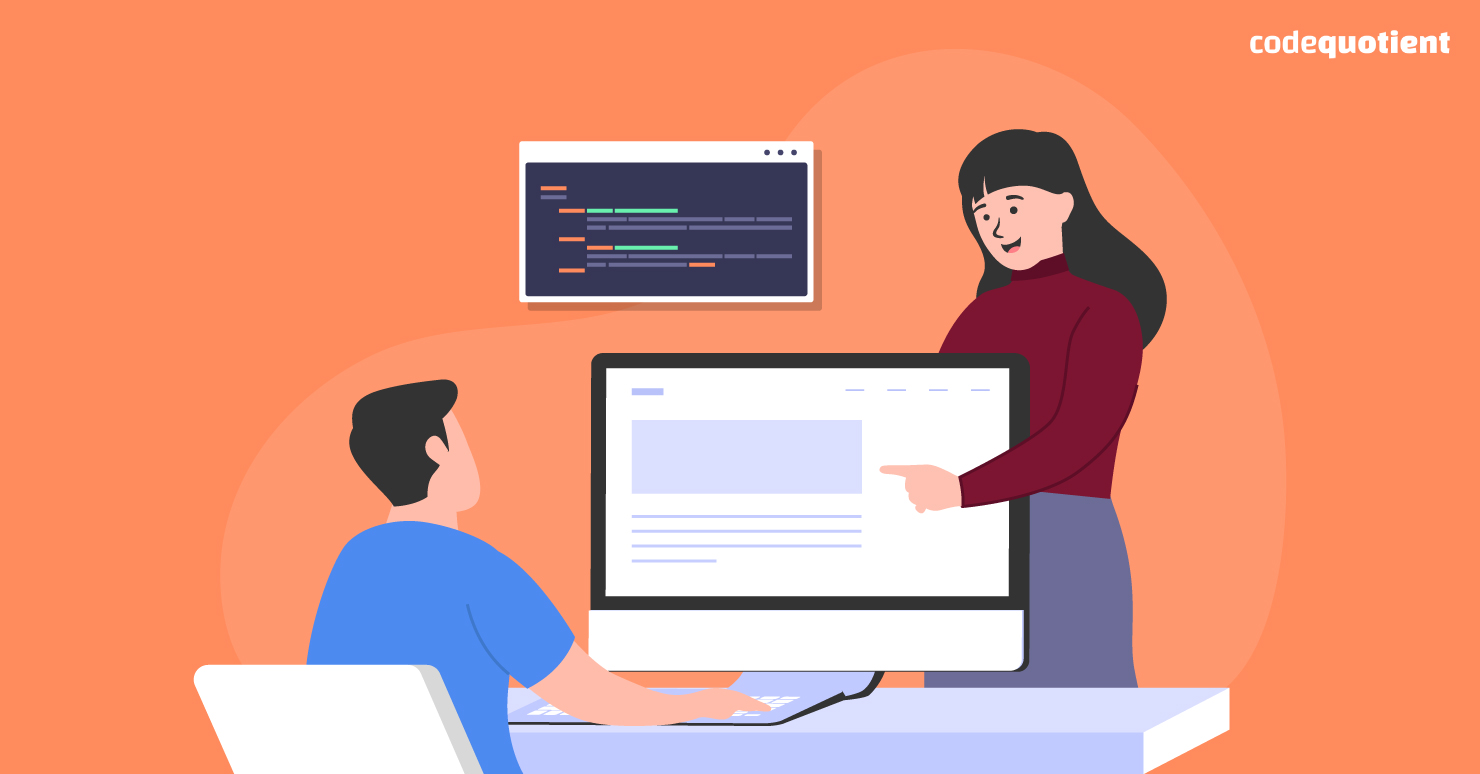What sets apart your coding skills? What gives your CV a boost in this competitive IT industry? It’s the number of real-time projects you have tried your hands on. So, have you built your passionate project yet? If not, it’s time to take the plunge and give your theoretical knowledge a practical swing with project-based learning.
It is true that building live projects during your education is a part of the journey and not the destination in itself, but it is one of those aspects that cannot be overlooked. The website, app, landing page, or UI that you build goes on to boost your confidence. It also becomes an example of your passion and the hard path you took to achieve it. This is how you can move towards landing the right job and establishing the right career.
You need to focus on creating a project that you’re excited about and promoting it online. Use different communication channels to get yourself interviewed by interesting people. Practice the algorithms and design problems over and over again until they feel natural.
What is Project-Based Learning and Why Does It Matter?

Project-based learning simply stands for a more practical, skill-based, and hands-on approach to education.
When you opt for an internship that focuses on project-based learning, you will be working on something that won’t be a part of your theoretical curriculum. This will give you a taste of something different and real. Everyone reads and learns from the same course material but how you grasp it and implement it determines your capability and passion for the role that you apply for.
Project-based learning simply stands for a more practical, skill-based, and hands-on approach to education.
These projects run side by side with your course where you get to actually try out what you have learnt. This is exceptionally important to accelerate your learning and mastering a new skill. Try projects in various domains to find out what interests you and where you feel more confident.
What’s the value of real-time projects?
Project-based learning helps you showcase to the companies that you can bring forth good results. A real-time project is like a LIVE portfolio and you get to display the output to give them an example of your capabilities. It will help you back the words about being competent and passionate about what you aspire to do.
Check out these proven benefits of project-based learning (PBL) and how it can better prepare you with skills for future career success:
1. Collaboration
In PBL, students often work in groups and the relationships formed during collaboration is a huge takeaway. Not only do you learn how to work better in groups—providing their own input, listening to others, and resolving conflicts when they arise—you get a taste of how your professional life will be.
2. Problem Solving
Bugs, glitches, and crashes are part and parcel of every coder’s life, no matter how good they are. What matters actually is how you approach such situations and tackle them. PBL teaches you precisely that, even learning from failure and possibly starting all over again.
3. Creativity
Closely related to problem-solving is how creatively you tackle your projects in actuality. In PBL, you apply your creative thinking skills to innovate new designs and possibilities for your projects.
4. Research Skills
With the practical-based internship, you build on your research skills and deepen your learning of applied content beyond memorisation.
5. Critical Thinking
When you are put through real-life scenarios, you learn critical thinking skills. It will allow you to look at problems with a new perspective and come up with possible solutions.
6. Project Management Skills
Management of time and resources is a key prerequisite for any job you apply for. As a student, you will learn how to manage projects and assignments more efficiently and under pressure.
7. Perseverance
Once you have worked in a few real projects, perseverance will not be just a word mentioned in your CV, and your interviewer will know that. In working on a project, you learn to manage obstacles more effectively, often learning from failure and possibly starting over from scratch.
In the initial stages of building a project, one can go through open-source projects on forums like mediums and GitHub repositories. Re-implementing these projects and building on them is a good way to start and one can use it to get comfortable with writing codes and different applications.
These forums have an added benefit as you’ll find various ‘awesome’ repositories on Github which has a curated list and links to domain-specific technologies. Anyone can refer to them and get to know about the latest methods being used in the industry.
Here’s an example to understand this in a better way:
Anil wishes to pursue a career in data sciences. To do so, he needs to have strong fundamentals which are not just covered by courses but also strong coding and exploratory skills.
He is fully aware of the data flow, has hands-on practice in doing Exploratory Data Analysis (EDA) and so he proceeds in building machine learning models. While these practices are not mentioned in the course structure, he has been able to learn them only by working on different projects.
The above example gives us an idea of what it means to have project-based learning and what sort of skills you can learn with such side projects.
Practical Aspects of Project-Based Learning

If you ever feel like you aren’t encouraged or motivated enough to start working on your project, try participating in challenges like hackathons and various open-source websites like Kaggle. These challenges are pragmatic and can develop an interest when starting with doing projects. Various prizes are also a huge motivating factor in working towards these challenges and at times winning such challenges, can land a direct interview with your dream company.
You may find yourself confused about where to invest your time and pick one which will be beneficial as well as have a new learning curve. Here are some that you can consider working with –
Budget & Expense Tracker
This is a great beginner-level side project. You will get to explore user management, advanced javascript and UI UX which will especially make your project different or better.
Video Players
Creating your very own audio and video players with javascript gives you the freedom to be creative and add different features to it and have fun while you work on something this exciting.
Online FTP Client
This project can be a hard one but it will help you to learn a lot of things. What you need to focus on is creating a simple FTP client to browse files, make edits or create folders using FTP.
Desktop Wallpaper Applications
You may have come across various wallpapers on mobile devices which have been created by different users. You can build an application using electron.js and learn about the development of software applications.
These are some of the few projects that you can work on and explore new skills that will help you grow. Because no matter what kind of advanced course you pick like Natural Language Processing or Big Data Analytics. You’ll ultimately have to pursue a project like Visual Question Answering or others to determine the measures for your theoretical knowledge.
Before you dive into project-based learning, ensure that you’re well aware and have foundational skills in the following –
- Technical skills
- Habits & Mindset
- Soft skills
Technical skills here include being aware of the basics of using Git. To create repositories, and edit & commit code. It also helps to know about version control systems even if the organisation you join doesn’t focus on them. You should also be well aware of how to work with HTML & CSS basics. Learning about SQL also helps you in the long run and instead of learning it on the job.
Habits & Mindset come into play when we talk about effective communication than just being limited to languages and tools. You need to know how to minimize errors and discuss them with fellow developers.
Soft skills are about working together, even when programming can be about working on your own. You can collaborate on projects that make for your growth and learning.
Now that you know what project-based learning entails, it’s time to give it a go and embrace success on your career path!




